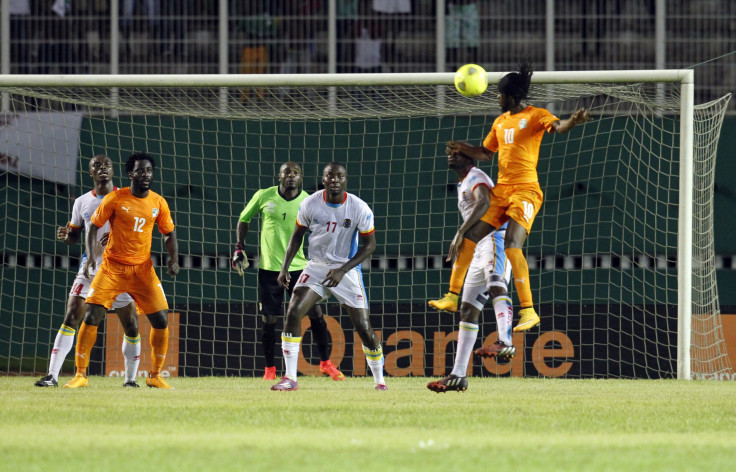2015 Africa Cup Of Nations: Is Equatorial Guinea Ready For Soccer Tournament Amid West Africa Ebola Outbreak?

Just days after Morocco stepped down from hosting the 2015 Africa Cup of Nations, officials announced that the small Central African country of Equatorial Guinea would become the host of the tournament, slated to kick off Jan. 17. The Confederation of African Football, the organization that governs the cup, revealed the change on Friday, the BBC reported. Some have questioned whether the country, which has just two major football stadiums and only a few months’ time to prepare for the tournament, can pull off such a last-minute feat – not to mention appease fears that the Ebola outbreak in West Africa could find its way to the games.
It was first thought that the football federation would favor Nigeria for the cup. The country has a multitude of football fans and the infrastructure to host the event, which attracted some 456,000 attendants in 2012. However, an official with Nigeria’s sports ministry told the Punch: “No, we are not in any way asking to take over [hosting.] Nigeria won’t host the competition and that is the position.”
Coordinating a huge event requires not only adequate stadiums but also transportation infrastructure, security and hospitality, notes Vice Sports. Why the continent’s other major soccer nations of Ghana, South Africa and Egypt – which all have the football infrastructure and resources to host – were not chosen, has largely to do with Ebola, according to the Associated Press. These countries have indicated they were unwilling to take Morocco’s place because of fears that the virus that has killed more than 5,000 people across West Africa would spread from arriving football fans and other travelers.
Oil-rich, Spanish-speaking Equatorial Guinea has a population of over 650,000. It has become one of sub-Saharan Africa’s biggest oil producers since the mid-1990s; however, the country’s oil wealth has disproportionately benefited only a small percentage of the population. The country remains at the bottom of the U.N. human development index, according to the BBC. Equatorial Guinea has an infant mortality rate of 20 percent, and less than half of the population has access to clean drinking water.
Equatorial Guinea does have some practice with hosting a major sporting event after it co-hosted the 2012 Africa Cup finals with neighboring Gabon. However, Equatorial Guinea, which held the opening match, one semi-final and the third-place match, struggled logistically to host just eight teams, Reuters reported. It will now have to be ready for double that number.
Equatorial Guinea’s two major stadiums can hold a total of just over 52,000 fans. Its Nuevo Estadio de Malabo, has a capacity of 15,250 and opened in 2007. Its other, Estadio de Bata, can hold 37,500 spectators.
Not all of the 2012 matches attracted many spectators. The most attended quarterfinals game was the Feb. 5 match between Gabon and Mali, which brought 30,000 people to the stands, according to ESPN. The final held in Gabon had 40,000 attendants. Only 2,000 people turned up to see Togo play Ivory Coast.
So far, none of the teams from the three African countries where Ebola continues to spread have qualified for the tournament. The likelihood of a person with Ebola traveling to Equatorial Guinea and infecting others remains low, according to Vice Sports.
Despite the virus’ relative isolation, Mohamed Ouzzine, Morocco’s youth and sports minister, said in October that he didn’t think any country had "the necessary capabilities to monitor, check and control the current Ebola situation” when dealing with an influx of possibly hundreds of thousands of football fans. “This is our real problem,” he said.
© Copyright IBTimes 2024. All rights reserved.












